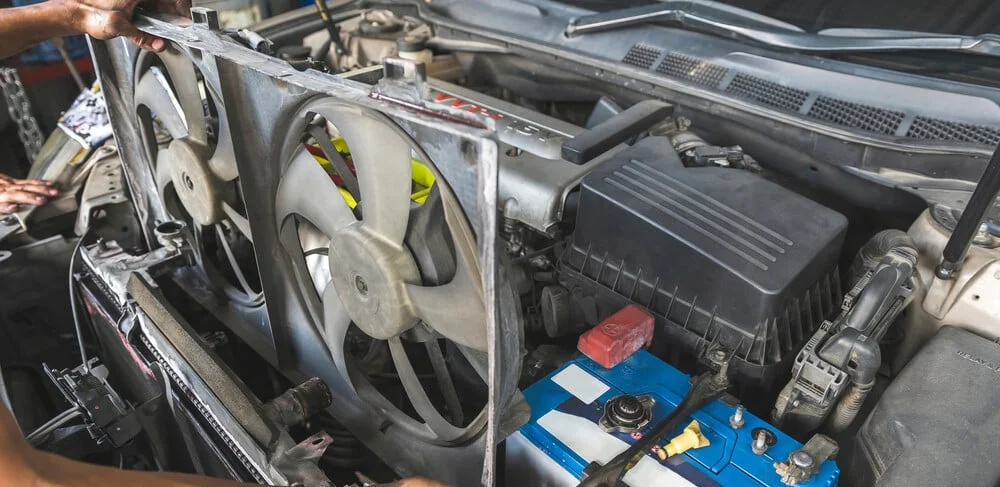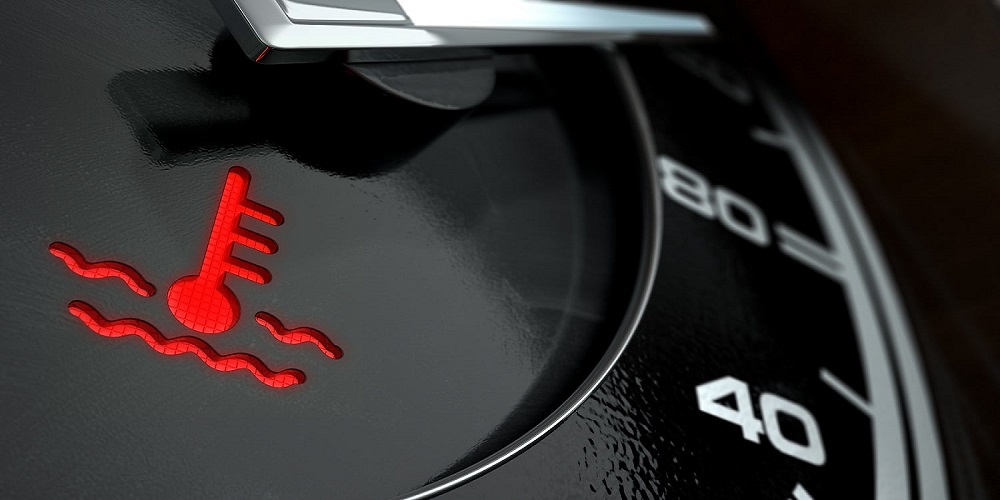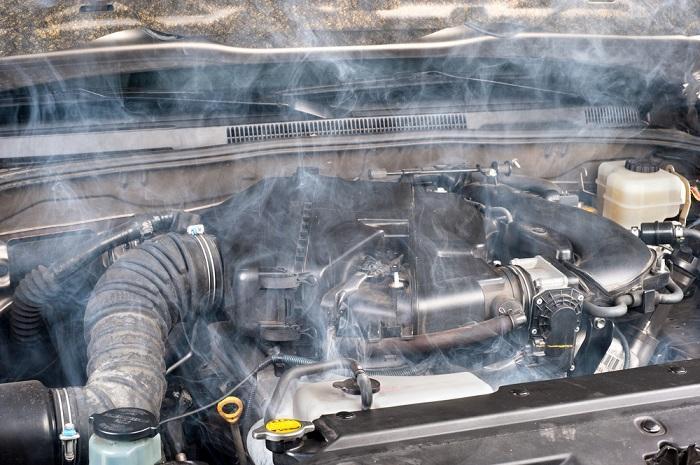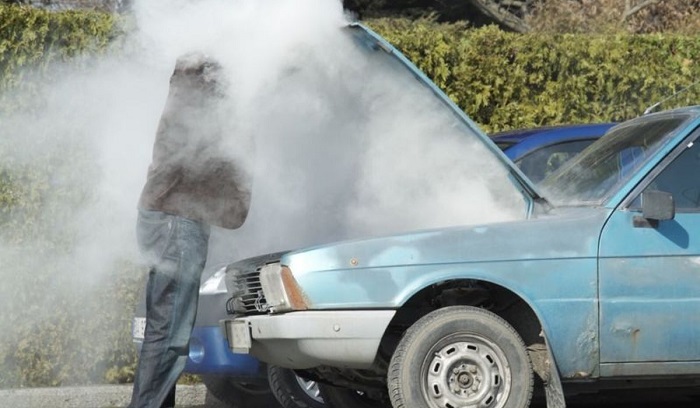Here is the usual situation: it’s a hot day and you are stuck in traffic while you suddenly notice that the temperature gauge is on the highest level showing your engine is burning. It’s obvious that your car is overheating. It’s an emergency and you need to do something right now otherwise your car engine will be severely damaged. As always, Linquip is here to show you what you need to do at the moment, to minimize the potential damages to your car engine, how to fix it, answer to the question “what are 10 common causes of overheating?” and elaborate all the possible reasons for car engine overheating. Read on to know what are the causes and how to react encountering this situation.
With Linquip, you’ll find a variety of valuable information about cooling systems and heat exchangers. Feel free to contact Linquip with any questions or concerns you might have regarding heat exchanger equipment & devices. It would be a good idea to visit Linquip’s page entitled “What Is a Heat Exchanger?” before you begin reading this blog post so that you can gain a better understanding of these devices and equipment.
Register as a Linquip Expert to take advantage of all the features Linquip has to offer. Creating an account with Linquip will enable you to display your experience in the field of industrial equipment in a way tailored to the industry’s specific needs. Is it of interest to you to submit a guest post? On the Linquip platform, you can directly publish content using the Guest Posting option.
How to Minimize the Potential Damage?
Before we get into the most common causes of engine overheating, let’s have a look at the things that can assist you while encountering situations like this and can prevent serious damage to your car engine.
First of all, you have to turn off the AC as soon as possible. Secondly, and maybe surprisingly, turn on your defroster and your heat to the highest level. If you wondering why you have to do so, tuning on the heat and defroster pull as much heat out of your engine. It will get hotter inside your car than outside so you have to pull down the windows. You may suffer extreme heat in the middle of a sunny summer day, but it’s about thousands of dollars in damage if your car engine continues to overheat. Then if you are still stuck in traffic, put your car in Neutral or Park mode and try to raise the speed of your engine. Doing so, you are trying to make the coolant circulate as much as possible. You have to press the gas pedal to get the RPM gauge to the 2000 RPMs. It doesn’t need to be exact, and you don’t need to pass that to make even worse problems to your car engine. Remind that if you are moving even though slowly, put the gear into the lowest between 2 and 3 on the RPM gauge heading to a suitable spot to pull over. And finally, when you reach to the right spot get off the car and call for a tow or help.
Doing what we mentioned above should get the temperature lower, at least temporarily. In case nothing happens after two minutes, you have to shut the car off immediately. It’s up to you how far is safe to go, but ruined engines have been seen many times as people want to drive just a little farther with an overheating engine.
Anyway, your engine overheats when your cooling system is not effectively absorbing, transporting and rejecting the heat your engine has created by burning fuel.
Now that you know how to deal with an overheating engine in the first place, we want to show you how to find the causes with answering to the question “what are 10 common causes of overheating?”
What Are 10 Common Causes of Overheating?
In the following, we mention 10 common reasons a vehicle’s cooling system begins to fail and make your engine overheat:
1. When There Are Leaks in the Cooling System
Leaks are the primary explanation for overheating engine. When there is a leak in hoses, the radiator, water siphon, indoor regulator lodging, water pump, head gasket, freeze plugs and a couple of different things, it would all be able to prompt issues with the car cooling system. In case you suspect a leak, or have needed to add coolant to the supply, don’t hold back to get it checked. A little hole in any part of cooling system can rapidly go in to a costly fix.
-
When Your Water Pump Doesn’t Work Effectively
Your water pump is the one of the most important part of your cooling system and in case it’s not working accurately, your car lacks sufficient pressure to impel motor coolant all through the cooling system. Any issues like erosion, spills or anything else can lead to an overheating engine.
-
When Paper, Dirt or Debris Block Radiator Airflow
Open the hood of your car. Check to ensure there is not a deterrent hindering the grill, or the part between the grill and radiator. Common things are: plastic bags, trash, cotton wood, etc. In case the grill or front of the radiator is blocked, air cannot flow through the radiator and transfer the heat out of the antifreeze. In addition, watch between the condenser and the radiator. A self-service car wash hose can clear out a lot of trash. Simply don’t get excessively near to the fins of the radiator and harm them or flatten them down.
-
Bad Thermostat
Your thermostat is an important valve in the cooling system that guarantees the coolant can go through to the radiator when necessary. At the point when the thermostat stalls out in the shut position, coolant can no longer go through and gets overheated in the motor, it’s a good idea to get the vehicle checked immediately at any indication of your vehicle overheating, so any conceivable basic fixes don’t turn out to be huge issues.
-
Bad Radiator
Leaks and obstructing can prompt your radiator failing since it can’t pull the heat away from the rest of the cooling system. So, any disturbance in the radiator’s capacity can lead to overheating.
-
Worn Out or Burst Hoses
Hoses with splits or even gaps will leave you with a cracked motor and will disrupt the coolant’s flow. Your water pump can’t circulate coolant that’s not there because of it having spilled out from one of the hoses.
-
Bad Radiator Fan
Your radiator fan drags air across the radiator to assist to reduce the coolant’s temperature. while a worn-out fan or broken fan motor can’t help it and will cause overheating.

-
Loose or Broken Belts
In case a belt is free or broken, particularly the water pump belt, it cannot offer assistance to keep up the right volume of coolant stream and can cause overheating.
-
Oil Leakage into a Cooling System
In case you find oil within the radiator you have got a major issue. There are two sorts of oil that might spill into your cooling system, transmission oil and motor oil. Transmission oil can enter your cooling system on the off chance that the transmission oil cooler that’s interior your radiator spills. You may too have motor oil within the radiator caused by a split motor head or cylinder divider. Both of these issues are exceptionally expensive to settle and you’ll have to get your vehicle into the shop before you encounter a bigger problem. in case you have got a transmission oil spill, a motor oil spill, or any oil blended together with your coolant, You should not drive your vehicle.
-
When Coolant Concentration Occurs
You generally need to utilize the right kind of coolant in your vehicle. An inappropriate coolant or an inappropriate blend of coolant and distilled water can make your vehicle overheat. In case you’re stressed over your coolant concentration and haven’t kept up on normally planned vehicle maintenance, an entire cooling system flush is in order. Coolant really gets destructive and corrosive after some time, quickening the wear on the cooling system!
What Is the Best Way to Diagnose Overheating Issues?
- The coolant level and radiator cap should be checked.
- The system should not contain any air.
- Inspect the radiator fans to see if they are spinning.
- Run a test on the fan motor.
- The serpentine belt should be checked.
- Ensure that there are no leaks.
What Is the Average Time It Takes To Damage a Car If It Overheats?
After 30-60 seconds of overheating, a vehicle can suffer permanent damage. Overheating must be treated immediately when you notice it. In the event that this step is not taken, problems such as coolant leaks, damaged radiator caps, and malfunctioning cooling fans might arise.
How Can You Deal with Overheating in Your Car?
Here are five steps you should take if your engine is overheating:
- Turn the heater on.
- Stop and turn off the engine.
- Be patient.
- Fill the cooling system with coolant.
- Find a service station and drive there.
Conclusion
An overheating engine needs immediate attention. Most of the time, the cause needs a simple and low-cost repair. But unfortunately, people often take the initial problem for granted so it causes extensive damage and spending much more money to fix a bigger problem. In this article we tried to answer the question “what are 10 common causes of overheating?” and show you how to react while you encounter an overheating engine situation. Our experts in Linquip is ready to answer more questions on this topic and give you advice with overheating engines. All you need to do is to sign up now. In addition, if you have any experience or opinion, we will be glad to have them in the comments. Hope you enjoyed this article.
Download What Are 10 Common Causes of Overheating PDF
For your convenience, this blog post is available in PDF format so that you will be able to download it to your computer.
Read More In Linquip
- 16 Parts of Heat Pump and Functions (Clear Guide)
- 3 Types of Heat Pump + Working Principle ( Clear Guide)
- Heat Exchanger vs. Chiller: Which One is the Best for You?
- Difference Between Heat Exchanger and Condenser: A thorough guide
- Heat Exchanger Efficiency Calculation & Equation
- Tubular Heat Exchangers: Usage & Working Principle
- What is Coil Heat Exchanger? Design Example
- Heat Pump Efficiency: Equation & Formula
- How Does a Heat Pump Work?
- Advanced Guide: What Is Tube In Tube Heat Exchangers
- What is Plate Heat Exchanger?
- What is Scraped Surface Heat Exchanger? Find it Where it is used
- Types of Plate Heat Exchanger: Different Types with Wide Use
- What is u-tube heat exchanger? An undeniable advantageous system
- Working Principle of Plate Heat Exchanger
- Types of Shell and Tube Heat Exchanger
- What are Counter Flow Heat Exchangers and its Working Principles?
- The Complete Guide To Air Source Heat Pumps Disadvantages
- What are Double Pipe Heat Exchangers and Their Working Principles?
- Heat Exchanger Parts: Description of Configuration
- What is Cross Flow Heat Exchangers and its Working Principles
- Installing an Air Source Heat Pump: Everything You Need to Know
- How to Calculate the Efficiency of Heat Exchangers?
- What Are Air Source Heat Pumps? A Complete Guide
- What is the Difference between Heat and Temperature?
- What Are Air Source Heat Pumps? A Complete Guide
- Heat Exchanger Design: How Is a Heat Exchanger Designed?
- Thermocouple for Water Heater: How does it Work?
- Types of Heat Exchangers: An Introduction to All Essential about Specifications
- Best Mini Split Heat Pump for Cold Weather {Ultimate Guide}
- A General Overview of Heat Pump Problems
- At What Temperature is a Heat Pump Not Effective? Easy Answer
- Heat Pumps vs Air Conditioners: The Everlasting Battle
- Easy Introduction to HVAC Maintenance and Services ( Heating and Cooling Repair )







I am facing this problem, I think this article going to help me thank you soo much.
Thanks for visiting our website and leaving your comment, Asim! We hope to hear from you again in our other posts.